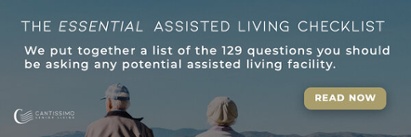With every move, you have to make some serious decisions. In retirement, you need to consider...
Getting Started With Medicare: How Can You Prepare?
Most Americans reaching age 65 achieve a significant milestone: Medicare eligibility. Launched in 1965, Medicare is a national health insurance program created and administered by the U.S. government and funded primarily via payroll taxes. Prior to its inception, over half of Americans, 65 or older, had no health insurance.
The program started with coverage for hospital stays (Part A) and other medical expenses like doctor fees (Part B). These two parts, known as "Original Medicare," operate as a "fee-for-service" system where a provider (e.g., hospital or doctor) gets paid for each service delivered.
Over the years, Congress added additional Medicare components. Among these were:
- Part A – Added coverage for hospice services and some long-term care expenses.
- Part C – Typically known as "Medicare Advantage," private insurers provide Parts A, B, and D coverage according to government regulations. These plans often include additional coverage like vision, hearing, and dental.
- Part D – Covering prescription drug costs, private companies deliver this benefit exclusively.
Medicare also covers certain people under 65 who are disabled and those who suffer from End-Stage Renal Disease or ALS (amyotrophic lateral sclerosis.)
Beyond knowing these basic facts, how can those under 65 prepare for Medicare?
Medicare = Mandatory?
Most everyone wants health insurance. It's especially significant for those 65 and older who will have increasing health needs along with a reliance on retirement income and savings to make ends meet. So, assuming you're not independently wealthy, signing up for Medicare makes sense.
It makes so much sense that the U.S. government considers Medicare sign-up mandatory. Even private health insurers support mandatory sign-up. For people with separate health coverage, insurers require policyholders 65 and older to also sign up for Medicare, so the insurers don't have to cover 100% of health claims.
However, knowing when and how to sign up for Medicare depends on the answers to these four questions:
- Question 1 – Are you age 65?
If not, the only way to receive Medicare benefits before age 65 would be in some cases of disability or being afflicted with amyotrophic lateral sclerosis (ALS) or end-stage renal disease (ESRD). Otherwise, reaching age 65 triggers the requirement to sign up for Medicare Parts A and B with some nuances that clarify depending on answers to the following questions. - Question 2 – If you are 65 and still working, are you covered by an employer health insurance plan?
If you are retired or working but not covered by an employer plan, then you would be required to sign up for Parts A and B. Otherwise, go to Question 3. - Question 3 – How many people work at the employer providing health insurance?
Medicare has different rules depending on the size of the company offering health insurance. For companies with fewer than 20 employees, signing up for Parts A and B is mandatory at age 65. This is because Medicare pays first, and the company's insurance pays second for these small plans. (Determining which plan pays first or second is called coordination of benefits.) For employers with 20 or more employees, go to Question 4. - Question 4 – Does the Employer's Health Insurance Plan Meet or Exceed Medicare Requirements?
Medicare aims to deliver a certain level of health insurance coverage. If the health insurance provided by a 20+ employee organization does not provide that benefit level, then you need to sign up for Parts A and B because Medicare will need to pay first. Conversely, if the health insurance plan meets the minimum requirements, it is considered to provide creditable coverage. The organization needs to provide a document confirming creditable coverage to be used when signing up for Medicare.
So, if sign-up is mandatory, what's the process?
Automatic Sign-up: Medicare and Social Security
Social security and Medicare are different programs. Yet, most people don't realize that when they sign up for social security benefits, they also are automatically enrolled at age 65 for Medicare Part A and Part B. Since Part A is free for most people, this usually causes no issues. However, Part B requires a monthly premium payment, so enrollees can opt out of it as long as they are covered by another qualified health plan.
Note: About a half-million Americans receive retirement benefits through the Railroad Retirement Board instead of social security. In these cases, Medicare rules apply the same as social security.
Also, since people can delay signing up for social security benefits until age 70, those reaching age 65 need to pay attention to mandatory Medicare sign-up for at least Part A. Failure to do so may incur costly penalties.
Medicare Sign-up Penalties
- Part A late enrollment penalty – This only affects the small number of people who don't qualify for zero cost Part A coverage. In those cases, the Medicare Part A monthly premium can increase 10% for twice the number of years of not being signed up. For example, a person who delayed one year would pay higher premiums for two years.
- Part B late enrollment penalty – Unlike Part A, all Medicare enrollees pay a Part B monthly premium. If a person does not sign up for Part B when first eligible, the monthly premium may increase 10% for each year the individual was not enrolled. To make matters worse, the penalty lasts as long as the person pays Part B premiums. For example, delaying Part B enrollment for two years would result in a permanent 20% premium increase.
- Part D late enrollment penalty – Failure to sign up for Part D prescription drug coverage can also result in a permanent premium increase. The penalty amount is based on the number of months without coverage. Therefore the more uncovered months, the greater the permanent penalty. The penalty calculation is a little complicated, so learning more about this formula makes sense.
When eventually signing up for Medicare, enrollees can present documentation from the employer or union confirming creditable coverage. It pays to find out ahead of time if the organization indeed provides such coverage. For example, any coverage provided by an organization with less than 20 employees is not considered creditable by Medicare.
Some people may delay signing up for Medicare because they cannot afford the premiums, deductibles, copays, or coinsurance. However, several alternatives are available to help pay these costs, like Medicaid, the Medicare Savings Program, and the Extra Help program that helps with Part D prescription drug expenses.
Even those who are not automatically signed up still need to go through the Social Security Administration (SSA) to enroll in Medicare. The reason is that SSA will affirm Medicare eligibility. The four ways to sign up through SSA are:
- Online at https://www.ssa.gov/benefits/medicare/ (Requires creation of a Social Security account.)
- Calling Social Security at 1-800-772-1213. TTY users: 1-800-325-0778.
- Contacting the local Social Security office.
Enrollment Windows
Medicare has three enrollment windows.
- Initial Enrollment Period – applicants can enroll during the seven-month period that begins three months before the month of turning 65. For example, if the enrollee turns 65 in April, signing up between February and April means Medicare benefits will start May 1. Signing up in the period of May-August means coverage will begin the first of the month after enrollment.
- Special Enrollment Period – Some people do not sign up during the initial enrollment period because they (and family members) are covered under a health insurance plan through an employer. In this case, there may be an opportunity to enroll during a special enrollment period. This eight-month period starts the month after employment ends or coverage ends, whichever comes first. Applicants who sign up during the special enrollment period usually won't suffer a late enrollment penalty.
- General Enrollment Period - if an applicant didn't sign up for Medicare during the initial enrollment period and is not eligible for a special enrollment period, sign up can occur during the general enrollment period and between January 1 through March 31 each year with coverage starting on July 1 of that year. However, delaying to the general enrollment period could trigger late enrollment penalties.
Part D Enrollment
Medicare Part D covers prescription medications, but unlike Parts A and B, it is optional. However, delaying enrollment may result in permanently higher premiums.
Part D coverage, offered only through Medicare-approved private insurers, can be obtained in either of two forms:
- Medicare drug plans - These plans add coverage for prescription drugs for those who already have Parts A and B.
- Medicare Advantage Plans – Also known as Part C, private health insurers "bundle" Parts A, B, and D according to Medicare rules. These plans are covered more completely in Chapter 4.
Both types of drug coverage charge premiums and have deductibles, copays, and coinsurance rules. To learn about Part D options and how to sign up, use the Medicare Plan Finder or call 1-800-MEDICARE.
Medigap
For those who enroll in Original Medicare (Parts A and B), there are costs for deductibles, copays, and coinsurance. In addition, there is no limit on out-of-pocket expenses. These "gaps" can be costly, so private insurance companies offer Medicare Supplement Insurance, otherwise known as Medigap coverage. These plans have premiums above and beyond other Medicare premiums but cover some of the gaps in Original Medicare coverage, including, in some cases, capping out-of-pocket expenses. However, Medigap is only available to supplement Original Medicare and cannot be used with Medicare Advantage Plans.
Looking for more? Download our eBook, "Navigating Medicare: Simple Idea, Complex Reality"!







